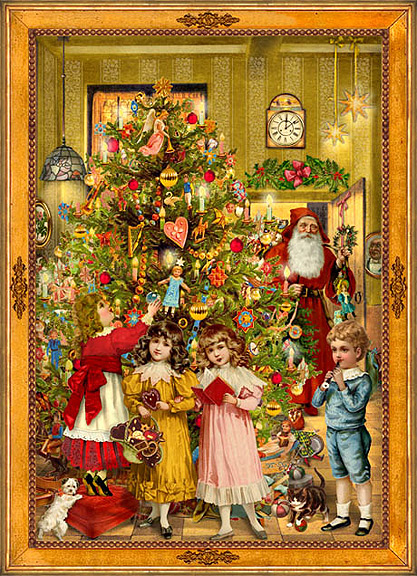 |
| via |
Most people regard the Christmas tree as a German tradition, brought to the English-speaking world in the 1840s by Prince Albert, the German prince who married Queen Victoria. The German custom seems to date from the Middle Ages, but what are its origins and the reasoning behind it?
As usual when dealing with the Middle Ages, there are lots of suggestions and no definite answer. But one theory is that the Christmas tree comes from the German mystery plays - not, as one might reasonably expect, from the Nativity plays, but from those dramatising the Fall of Adam and Eve.
These plays seem to have been staged on Christmas Eve and their props would have included a tree of some kind, representing the Tree of Knowledge and hung with apples symbolising the forbidden fruit. Over time, scholars suggest, the trees moved inside homes, where they remain today - and the traditional round baubles are what remain of the original 'fruits.' (In Germany and Austria some still do decorate their trees with dried fruit.)
A nice little story, but unfortunately one hard to prove. (There is an alternative tradition that the Christmas tree is neither Germanic nor Christian, but an adaption of a very old pagan custom Christianised by St Boniface.) Still, it deserves to be made known, if only because very few realise they may have the mystery plays to thank for their Christmas trees. Told you the mystery plays were still relevant :D
NB I must confess that despite being thoroughly acquainted with the English mystery plays and reasonably aware of the German and French ones I had never heard this story until last Sunday's sermon... which shows, firstly, that one can never know everything; secondly, that a good grounding in medieval literature comes in handy when writing sermons.
And thirdly, it proves that I was listening to the sermon ;)

No comments:
Post a Comment